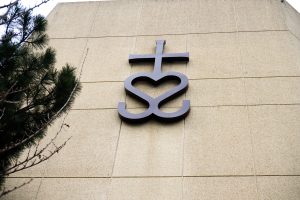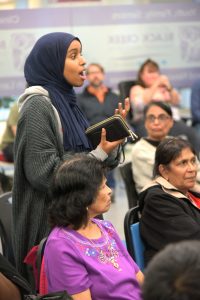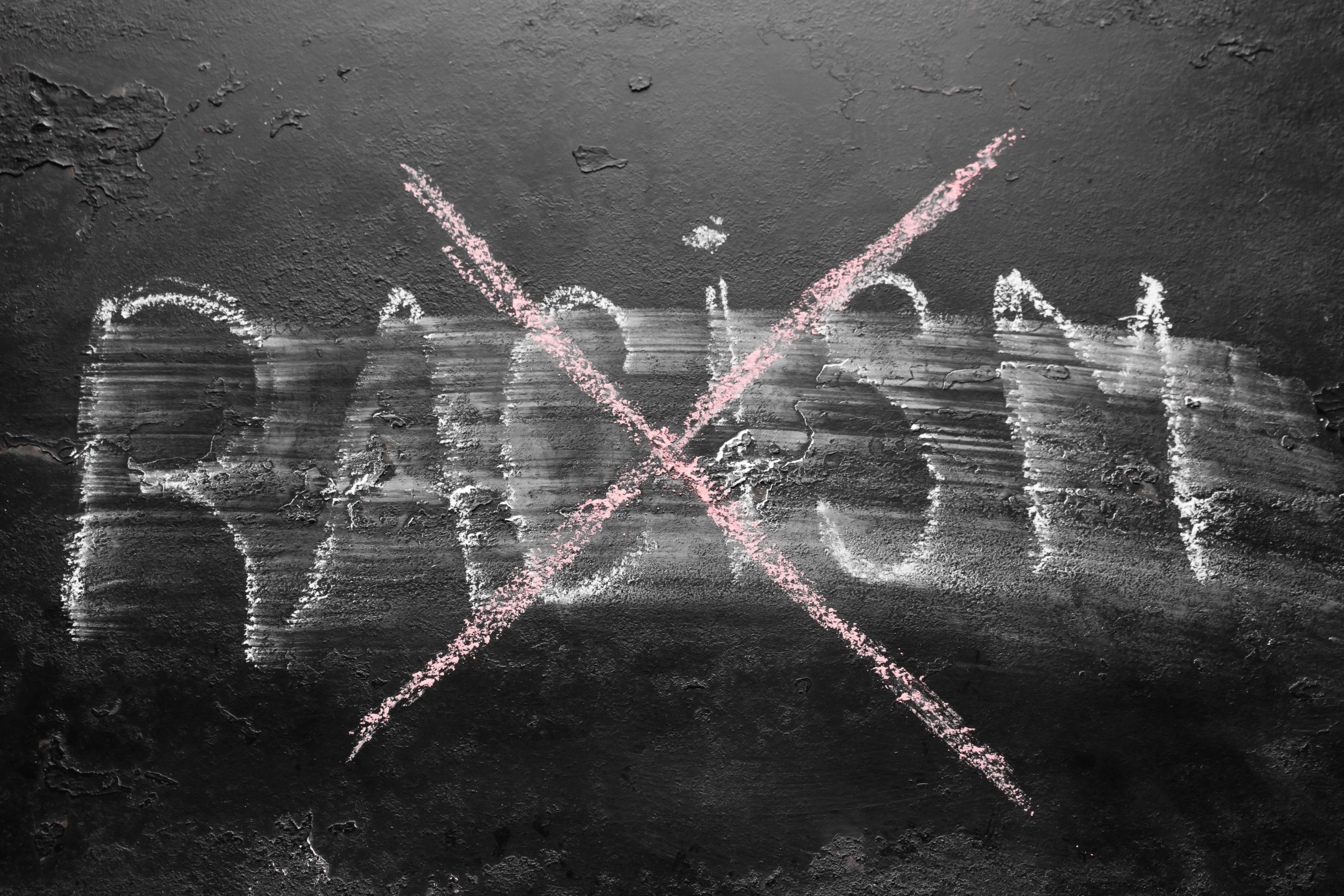Toronto Catholic board promotes anti-racism plan
Jane Finch Education Action (JFEA) has full meetings. A few weeks ago, people on the committee asked hard questions about the death, a few days earlier, of 12-year-old Dante Andreatta out shopping with his mother on a Saturday afternoon. He was hit by a stray bullet during a shooting on Stong Court near the intersection of Jane and Finch. Three other kids were shot, but later released from hospital. Interim Police Chief James Ramer told CBC News, Dante was “in the wrong place at the wrong time” ; that what happened had “all the hallmarks of a gang-related shooting.” A couple of men in their twenties were charged with murder. The story will fade from the news, but it hangs over this community.
Members of the community at the meeting asked each other: How do we deal with this? What can schools do? Are teachers and staff prepared to show up and comfort kids in their schools when something like this happens? Are they even equipped to have conversations about it?
Anti-racism and equity at the TCDSB
 In light of this, the next agenda item was all the more significant- because what schools do within a community matters deeply to its strength and safety. Toronto Catholic District School Board (TCDSB) superintendent Derek Chen and local Trustee Ida Li Preti presented the board’s anti-racism plan. They were enthusiastic about it – “pushing the equity perspective,” focusing on anti-Black and anti-Indigenous racism. When I spoke with Ms. Li Preti a week later, she didn’t hold back: significant changes need to be made regarding professional development and learning resources. She also said that, with 5 new trustees after 2018 election, the board has become equity driven.
In light of this, the next agenda item was all the more significant- because what schools do within a community matters deeply to its strength and safety. Toronto Catholic District School Board (TCDSB) superintendent Derek Chen and local Trustee Ida Li Preti presented the board’s anti-racism plan. They were enthusiastic about it – “pushing the equity perspective,” focusing on anti-Black and anti-Indigenous racism. When I spoke with Ms. Li Preti a week later, she didn’t hold back: significant changes need to be made regarding professional development and learning resources. She also said that, with 5 new trustees after 2018 election, the board has become equity driven.
The impetus for the TCDSB plan comes from a directive by the Ministry of Education (MET) in July for all school boards to begin collecting race-based data beginning January 2023. Trustee Norm di Pasquale who is heading up the TCDSB initiative told me that the board is planning to start collecting this type of information in March, to get an early start.
How staff will do it isn’t yet very clear. Mr. Chen said the board could glean from students’ self-reports, information about disparities between races in suspensions academic achievement, the number of special education plans (IEPs) and graduation rates. The TCDSB communications department said the board is planning a census of all students and collecting information during annual registration and course selection.
It said there will be “focus groups of stakeholders” who can relate incidents of racism and whether or not there are leadership opportunities for Black and Indigenous people. This is part of the board’s goal to “create our Dismantling Anti-Black Racism Strategy.” Hopefully, there’s something along similar lines for Indigenous people, for other People of Colour.
Derek Chen spoke about other things the board wants to change: There isn’t enough representation from Black Indigenous People of Colour (BIPOC) in general, but especially among administrators. He thinks there needs to be more diversity of literature in school libraries, so a working group has been set up to consult with English department heads and librarians about criteria for the kinds of books that should appear on school bookshelves. He wants to stop racial slurs from happening anywhere in the board. He wants programs to look at events through the lenses of different people – Remembrance Day through an Africentric lens, for instance. Mr. Chen want to further develop the board’s connections with community groups like the Canadian Alliance of Black Educators and Power to Girls. The TCDSB has hired Human Equity Advisor, Lavinia Latham, to guide plans for improving equity and human rights and collecting data, helping to resolve complaints and so on.
libraries, so a working group has been set up to consult with English department heads and librarians about criteria for the kinds of books that should appear on school bookshelves. He wants to stop racial slurs from happening anywhere in the board. He wants programs to look at events through the lenses of different people – Remembrance Day through an Africentric lens, for instance. Mr. Chen want to further develop the board’s connections with community groups like the Canadian Alliance of Black Educators and Power to Girls. The TCDSB has hired Human Equity Advisor, Lavinia Latham, to guide plans for improving equity and human rights and collecting data, helping to resolve complaints and so on.
Trustee di Pasquale added to this list when I spoke with him later. He was excited that the board is finally moving forward on the issues that the Ministry plans to end, like streaming students into Academic or Applied classes in grade 9 and ending suspensions for children from JK to grade 3 – ones that come under a principal’s discretion at least. Mr. di Pasquale wants the suspension records for these young children expunged. He wants to know who is being suspended and why, to see the trends across the system. He wants to see more culturally relevant pedagogy and look at different ways to consider inviting kids into programs like gifted classes. He also wants anti-racism training for all staff and including trustees at the TCDSB.
What would this look like? The TCDSB communications department told me there could be activities like a book club for staff on the books like “White Fragility,” and a “professional conversations” series on equity and diversity topics like “building inclusive classrooms and mindfulness meditation” along with other workshops and presentations. This plan is pretty thin so far and could certainly do with some fleshing out.
Looking closer at anti-racism
What about police involvement in schools? School Resource Officers (SRO) started to work in selected schools across the city shortly after 15-year-old Jordan Manners was shot and killed at C.W. Jeffreys CI in 2008. It was a controversial program and The Toronto District School Board (TDSB) suspended it in 2017 after a board report found that students felt uncomfortable and intimidated as a result of it. The Catholic board has yet to go the route of the TDSB. Currently, the program is under review. But why not just suspend it as other boards, like Peel, have done?
The Toronto Catholic Board looks to be moving in the direction of recommendations from Towards Race Equity In Education a 2017 report headed by Professor Carl James of York University like culling paternalistic books, collecting race-based data, creating a superintendent of Equity and making sure that staff and trustees get anti-racism training. The board’s equity committee should consider some of its other key recommendations:
-
-
- Fund equity resource teachers to share strategies for promoting success amongst BIPOC students
- Explain to parents about the way in which inappropriate behavior is handled in the school. Make sure they know about appeal mechanisms for suspensions and expulsions.
- Establish restorative justice and alternative dispute resolution strategies to eliminate the need for out-of-school suspensions

Orange Shirt Day – September 30 - Require all schools to celebrate Black History/African Heritage Month and ensure that Black students see themselves as part of culture and history beyond just slavery. Note: Schools can also celebrate Orange Shirt Day in the spirit of reconciliation with Indigenous people
- Prohibit schools from calling law enforcement for disciplinary matters and create a list of behaviours for which police may not be called like defiance or profanity
- Incorporate equity and anti-racism qualities in job descriptions, hiring and promotion criteria for teachers, administrators and other staff.
-
Note: All of these ideas can apply to Indigenous students along with young people from different races and cultures who go to our schools.
Over the years, people writing for School and publications like it have promoted other. ideas a board like TCDSB could use:
-
-
- Give recognition and support for teachers who cultivate good relationships with BIPOC students – and generally promote equity and involvement of these kids and their communities.
- A meaningful BIPOC curriculum that is woven into all subjects rather than given pro-forma treatment during a designated time for recognition. Students need to see themselves reflected in what they routinely learn.
- Provide much more academic support and counselling for students who are falling behind their peers in school. If children aren’t grasping basic literacy and math they need, it’s the school’s problem, not the child’s. We can’t throw our hands in the air and say: “there’s nothing more we can do.”
- Include BIPOC students along with community members, youth workers, parents, trustees and educators in local advisory committees whose purpose it is to monitor changes in relevant activities like school discipline, academic support and so on.
- Enforce discipline polices regarding peer to peer racist behaviour.
- Make sure that principals are following progressive discipline steps and only suspend or expel students under the most serious circumstances. Kids don’t just pick up and learn from the experience of being kicked out of school; they need to learn how to stay there.
- Ensure that there is a duty to report racism on the part of staff and elected officials. Deal with these infractions to the full extent regulations permit. This leads back to Stephen Lewis’ comment in his report from 1992: “…the crucial thing is to monitor the performance of superintendents and principals and individual teachers. And if the performance evaluation falls short, then action will have to be taken.”
- Create meaningful and deeply integrated school councils, whose members can oversee school discipline and curriculum, be critical and demand meaningful changes. Make sure they have real power – like suggesting curriculum changes or setting criteria for hiring staff members. This is the linchpin for anything the TCDSB might do to improve equity. It’s what makes people think they are being taken seriously.
-
Cleaning your own house
Trustees at the Toronto Catholic board need to clean up their own house too, if they want to muster the credibility to move forward with these plans. It took a year and two tries to finally censure Trustee Michael Del Grande for equating gender identity and gender expression with bestiality, cannibalism, auto-erotic asphyxiations and something called “auto vampirism” . This disgraceful display happened because he didn’t agree with including gender identity and expression in the board’s code of conduct, something that would protect them from discrimination. After 10 months, the board couldn’t manage to wrangle enough support to officially call him out. Finally, early in November, enough trustees either changed their minds or recused themselves from voting to sanction Mr. Del Grande. This issue wasn’t specifically about racism, but speaks volumes about the TCDSB’s capability to show true commitment to equity in general.
The big question is what the TCDSB actually does to make schools work better for its most vulnerable kids; how it goes beyond plans to improve conditions in schools. Schools running on serious anti-racist principles will surely strengthen the community in the face of poverty, government cuts to social services and health, lack of affordable housing and violence that hovers over all of this.
Why data collection?
Because action is so important, parents and community members at the JFEA meeting asked: why the emphasis on data collection? It’s intrusive, not necessary for planning, given reports like Towards Race Equity in Education – why not move forward with information from that and so much other literature about equity?
Superintendent Chen was adamant. The board doesn’t have the information it needs to plan properly to address racial-based gaps in suspensions and in achievement. When I asked Norm di Pasquale about gathering data, he said it had political value because it supports arguments for improving resources – increasing the size of the committee overseeing the anti-racist strategy, for instance. There are only 4 members on it and 90 000 kids at the TCDSB.
Still, there’s more to the issue of race-based data collection and School has reached out to U of Toronto professor Rinaldo Walcott, who kindly gave us permission to publish his recent article: Data or Politics? Why the answer still remains political. It’s up next.


